Episodes
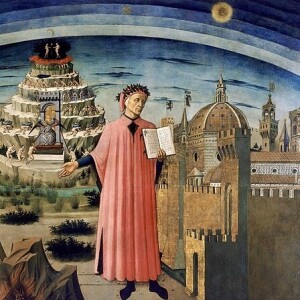
Tuesday Apr 16, 2024
Dante's Divine Comedy - 2 with Dr. Tiffany Schubert
Tuesday Apr 16, 2024
Tuesday Apr 16, 2024
Last week Dr. Tiffany Schubert discussed Inferno, the first book of Dante’s Comedy. Our friend and former colleague Jason Baxter remarked that in Inferno, “Dante’s poetic violence is meant to melt down the hard heart so that it can be reforged into something new.”
Purgatorio is the place where that melted down and malleable heart finds the forge, the place where the hammer of suffering purges all impurities and fashions our hard hearts into hearts perfected.
And finally Paradiso shows us the path of choosing the good, true, and beautiful habitually as we gaze on the Face of God eternally “lost,” as the hymnwriter put it, “in wonder, love, and praise.”
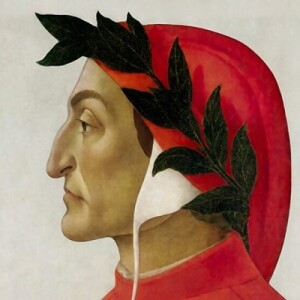
Tuesday Apr 09, 2024
Dante's Divine Comedy - 1 with Dr. Tiffany Schubert
Tuesday Apr 09, 2024
Tuesday Apr 09, 2024
Midway in the journey of our life
I came to myself in a dark wood,
for the straight way was lost.
Ah, how hard it is to tell
the nature of that wood, savage, dense and harsh—
the very thought of it renews my fear!
It is so bitter death is hardly more so. (Inferno 1.1-7)
During Lent and now during Easter, our sophomores, under the guidance of Dr. Tiffany Schubert, have been reading Dante's Divine Comedy in their humanities class. And while that reading is academic, no one can avoid Dante’s emphasis throughout the poem on our spiritual lives.
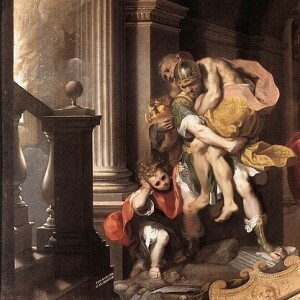
Tuesday Dec 05, 2023
Virgil’s ”Aeneid” with Dr. Tiffany Schubert
Tuesday Dec 05, 2023
Tuesday Dec 05, 2023
Virgil's Aeneid tells us about the founding of Rome and begins with the destruction of Troy at the end of the Trojan War, the war recounted in The Iliad. As the Greeks burn and sack Troy, Aeneas escapes with his father, his son, his household gods, and a small band of fellow refugees to found a new Troy—greater, more powerful, and more magnificent than the old Troy—in Italy.
Dr. Tiffany Schubert has been teaching The Aeneid to our Wyoming Catholic College sophomores.
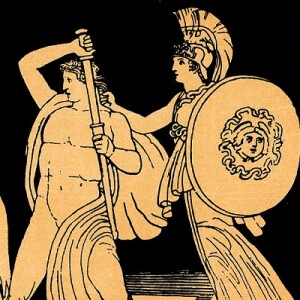
Tuesday Oct 03, 2023
Homer’s ”Iliad” with Dr. Glenn Arbery
Tuesday Oct 03, 2023
Tuesday Oct 03, 2023
The Iliad, first of Homer’s great epics, tells the tale of the war between Greece and Troy as it unfolded on the plains outside that ancient city. And the focus of the tale is Achilleus, the greatest warrior on either side who, for most of the book, sits on the sidelines.
Dr. Glenn Arbery is both a scholar and teacher of The Iliad who, once again, is reading the epic with our Wyoming Catholic freshmen.
Tuesday May 16, 2023
Graduation 2023: The President’s Address by Dr. Glenn Arbery
Tuesday May 16, 2023
Tuesday May 16, 2023
This past Saturday, May 13 began what we’ve come to call our graduation triduum, three days of celebrating the achievements of ther Wyoming Catholic College Class of 2023.
Graduation weekend begins with the senior dinner on Saturday evening—seniors, faculty, and staff only. Monday was Commencement. And Sunday, after Baccalaureate Mass we held The President’s Dinner at which college president, Dr. Glenn Arbery, addressed seniors their parents, families, and friends along with the faculty and staff.
Here’s what Dr. Arbery had to say.
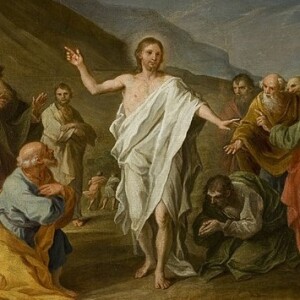
Tuesday Apr 11, 2023
Gerard Manley Hopkins’ ”Spring” with Dr. Glenn Arbery
Tuesday Apr 11, 2023
Tuesday Apr 11, 2023
Fr. Gerard Manley Hopkins, S.J. (1844-1889) is considered to be one of the greatest poets of the Victorian Era though, oddly, the Victorian Era never read Hopkins. While, imitating his father, he wrote poetry while growing up, he burned his early poems when he decided to become—of all things—a Roman Catholic priest, having been raised High Church Anglican and he wrote no poetry for years.
His later poetry, the poems we have today, were only published thirty years after his death.
Wyoming Catholic College President, Dr. Glenn Arbery suggested Hopkins' poem "Spring" would be a good one to consider during this Octave of Easter.
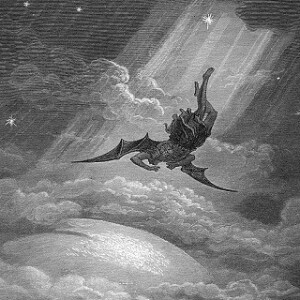
Tuesday Mar 07, 2023
Lies and the Father of Lies in Milton’s ”Paradise Lost” with Prof. Adam Cooper
Tuesday Mar 07, 2023
Tuesday Mar 07, 2023
Defeated in the attempt to war against God, fallen from Heaven, chained in the fiery muck of Hell, Milton’s Satan nonetheless declares:
What though the field be lost?All is not lost; the unconquerable Will,And study of revenge, immortal hate,And courage never to submit or yield:And what is else not to be overcome? (I.1-5-109)
The Romantics in the nineteenth century saw Satan as the real hero of Paradise Lost, a mighty warrior who will not except defeat, will not apologize for his rebellion, insists on fighting on against impossible odds, and asserts his inner convictions, his inner identity no matter what.
Others aren’t so sure.
Prof. Adam Cooper has been teaching Paradise Lost to our Wyoming Catholic College juniors, debating, among other things, the character of Satan and his demon hoards.
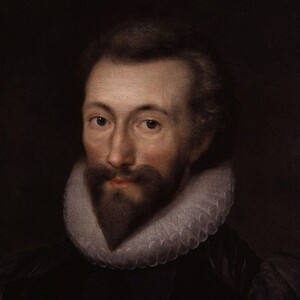
Tuesday Dec 27, 2022
”Nativity” by John Donne with Dr. Glenn Arbery
Tuesday Dec 27, 2022
Tuesday Dec 27, 2022
After a month of “The Christmas Season” which was actually Advent, it’s finally the Christmas Season allowing us the leisure to reflect on the Nativity of Christ.
Poet, novelist, and Wyoming Catholic College president, Dr. Glenn Arbery helps us reflect on the birth of Christ using the poem "Nativity" by John Donne.
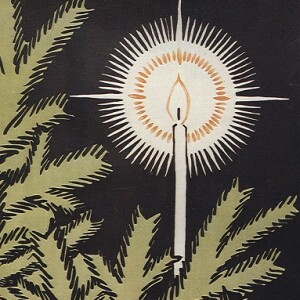
Tuesday Dec 20, 2022
Tuesday Dec 20, 2022
Clement Clarke Moore’s “A Visit from St. Nicholas” may be the best-known poem in America today. For many it may be the only-known poem besides lyrics to one pop song or another. We are not a poetic people though that was not always true. Americans in the past had a huge appetite for poetry—an appetite we can recover.
Of course, Moore’s paean to St. Nick is hardly the only Christmas poetry in the world. Christians have been writing poems about the First Coming of Christ as a babe in Bethlehem for two thousand years.
As a Christmas gift to you, our listeners, on this podcast Wyoming Catholic College students share from that treasury of Christmas poetry.
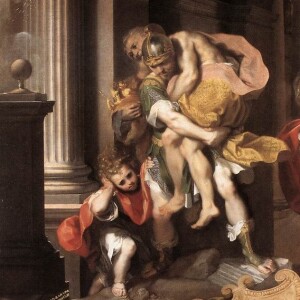
Tuesday Dec 13, 2022
Caesar, Virgil, and The Aeneid with Dr. Pavlos Papadopoulos
Tuesday Dec 13, 2022
Tuesday Dec 13, 2022
When Aeneas visits the underworld in Virgil's Aeneid, he sees great heroes who have died and great heroes yet to be born.
Here is Caesar, and all the offspring
of Julus destined to live under the pole of heaven.
This is the man, this is him, whom you so often hear
promised you, Augustus Caesar, son of the Deified,
who will make a Golden Age again in the fields
where Saturn once reigned, and extend the empire beyond
the Libyans and the Indians....”
It’s no surprise that Virgil wrote such extravagant praise of Caesar Augustus into his epic. After all, Caesar Augustus gave him the job of creating the founding myth of the Roman Empire that had supplanted the Roman Republic.
As he has been teaching The Aeneid to our Wyoming Catholic College sophomores, Dr. Pavlos Papadopoulos has been thinking a great deal about that transition.

